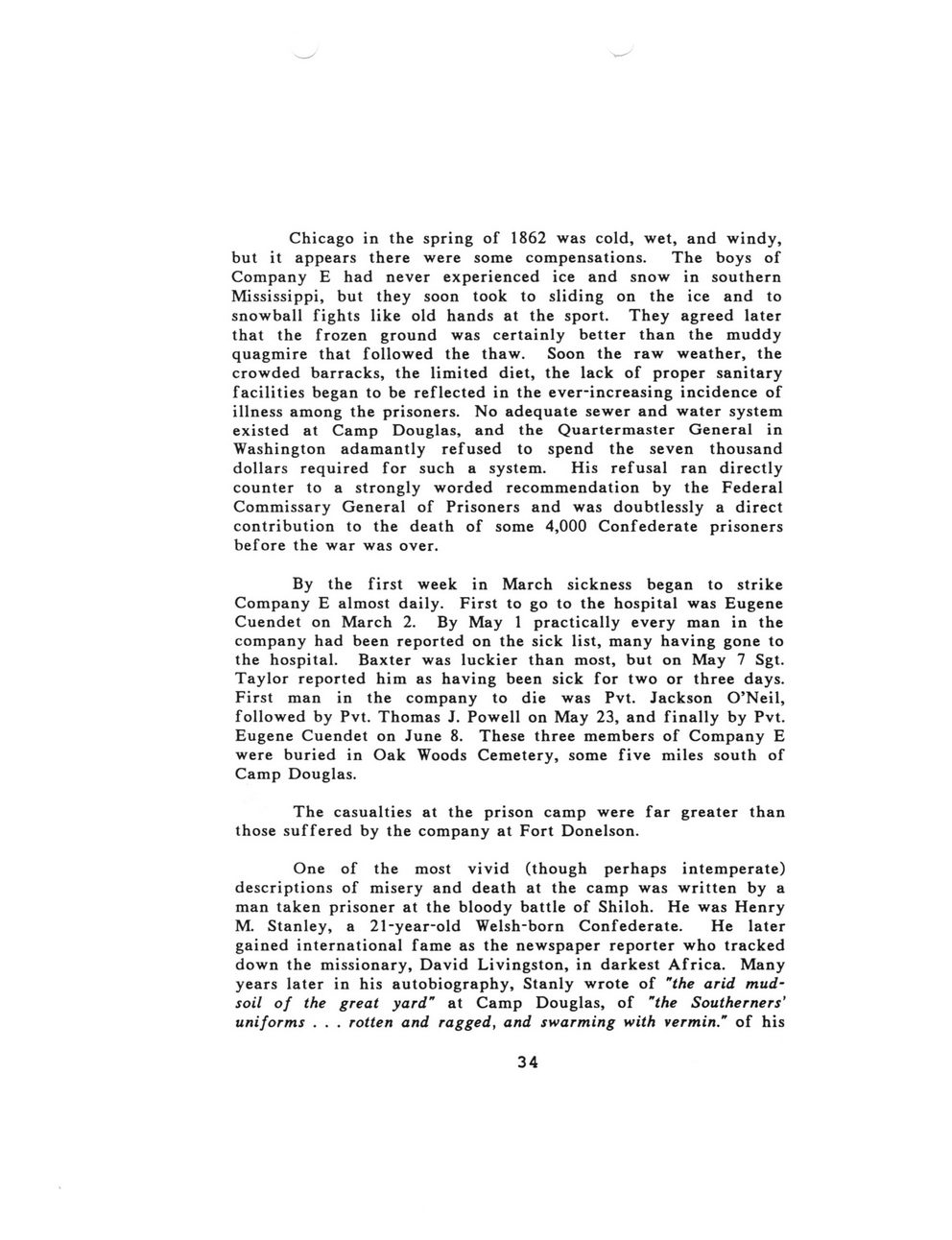This text was obtained via automated optical character recognition.
It has not been edited and may therefore contain several errors.
Chicago in the spring of 1862 was cold, wet, and windy, but it appears there were some compensations. The boys of Company E had never experienced ice and snow in southern Mississippi, but they soon took to sliding on the ice and to snowball fights like old hands at the sport. They agreed later that the frozen ground was certainly better than the muddy quagmire that followed the thaw. Soon the raw weather, the crowded barracks, the limited diet, the lack of proper sanitary facilities began to be reflected in the ever-increasing incidence of illness among the prisoners. No adequate sewer and water system existed at Camp Douglas, and the Quartermaster General in Washington adamantly refused to spend the seven thousand dollars required for such a system. His refusal ran directly counter to a strongly worded recommendation by the Federal Commissary General of Prisoners and was doubtlessly a direct contribution to the death of some 4,000 Confederate prisoners before the war was over. By the first week in March sickness began to strike Company E almost daily. First to go to the hospital was Eugene Cuendet on March 2. By May 1 practically every man in the company had been reported on the sick list, many having gone to the hospital. Baxter was luckier than most, but on May 7 Sgt. Taylor reported him as having been sick for two or three days. First man in the company to die was Pvt. Jackson O?Neil, followed by Pvt. Thomas J. Powell on May 23, and finally by Pvt. Eugene Cuendet on June 8. These three members of Company E were buried in Oak Woods Cemetery, some five miles south of Camp Douglas. The casualties at the prison camp were far greater than those suffered by the company at Fort Donelson. One of the most vivid (though perhaps intemperate) descriptions of misery and death at the camp was written by a man taken prisoner at the bloody battle of Shiloh. He was Henry M. Stanley, a 21-year-old Welsh-born Confederate. He later gained international fame as the newspaper reporter who tracked down the missionary, David Livingston, in darkest Africa. Many years later in his autobiography, Stanly wrote of "the arid mud-soil of the great yard" at Camp Douglas, of "the Southerners? uniforms . . . rotten and ragged, and swarming with vermin." of his 34

Baxter, Marion Francis Marion-Francis-Baxter-Bio.-034